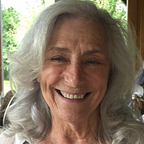Slovakia’s Oscar® 2019 Entry for the Best International Feature ‘Let There Be Light’
As Slovakia today is showing a 4.2% growth rate, the second highest in the Eurozone, its families and their traditions are shifting as it transitions into global capitalism.
Milan, a construction worker and father of three, a fun, loving man with a laugh that warms you to hear, works in Germany with hopes of providing for his family in Slovakia. When he visits home for the holidays, he learns that his eldest son Adam has joined a paramilitary youth group responsible for the abuse and death of a young boy. In navigating a very tricky situation, given the size of the town and the fact that everyone knows everyone, Milan and his wife uncover truths about themselves, their family and the community around them.
See the trailer here.
To see the village folk, their young priest and Milan and his family come to loggerheads about issues of cohesiveness, community and family when the undercurrents of violence and homophobia are uncovered, is to begin to understand today’s political realities. A number of far-right paramilitary groups in Eastern Europe have been inducting children and teens, promising them a secure future and providing them with firearms, and it looks like this reactionary ideology has reached the village where Milan and his family live.
Director Marko Škop worked with former young members of such groups to ensure his script was authentic. Much of his script is inspired by conversations he had with real parents and children with connections to paramilitary groups. in addition, Škop did extensive research on economic migrants, much like Milan, meeting families in both Germany and Slovakia.
We see Milan as he leaves Germany after dining with a German buddy and his heart-hardened executive wife. He is happy and sweet, a bit of a country bumpkin but with a laugh which warms you to hear. When he comes home, his own loving wife and children begin to show him the problems of their day-to-day lives. His stern father reminds him of the tough society he has returned to. When his son’s schoolmate commits suicide, an act condemned by the Church in this conservative and Catholic village, an act brought about by young fascistic “Guards’, a group his own son belongs to and his youngest son is about to join, his search for a solution is complicated.
It is fascinating to see the religious customs of God-fearing Christians greeting each other by invoking God and the Sunday custom of children bending to ask their parents for forgiveness and the parents responding “It is for God to forgive you”. Cracks in the solid Christian front appear briefly as they speak of immigrants or Muslims taking their jobs and as the grandfather says “Democracy is crap” and bemoans the passing of the good ole days of the Slovakia Republic (presumably under Communism? or under the Nazis?), and more starkly as secrets are revealed.
Milan’s belief that “Those who have never seen the world have the worst view of it,” is borne out by the insularity of his small community as it fights against what it sees as modern sinful living and we see how the incursion of digital toys, phones, etc. disrupts a modern but traditional way of life.
We are allowed to see the mentality of the nation today as it condemns that which is creating economic stability. We see how men continue to put women in inferior positions with very little voice and to see how women raise the children to become the adults they become.
Knowing little, generalizations are easy to make. When I compare this film to last year's Winter Flies, a light comedy, I see both have a sweetness to the characters which I might call “Slovakian” after seeing all of two films in the past decade except for the period pieces like The Translator or even The Painted Bird (and I have so far missed both these as well, to my regret.)
This film is almost relentless as the father discovers the activities of his son, the perverse game of oppression his younger son plays with his younger daughter, the guns, the homophobia, the hypocrisy. Until he finds a man-like way to bring his son back to him, we find ourselves seeking a branch to hold on to before we are swept away by the sequence of horrible events.
Nothing goes unseen in the village but much is left unsaid and you wonder how Milan will ever sort out the mess he has uncovered. He is a good man among wolves in a place where brotherly love is evoked from the pulpit, where women’s voices are only heard in the home, and the home is besieged to make them fearful. As Fassbinder said, “fear eats the soul”.
The grandfather is brought around when his son finally takes a stand and he praises his son, “Whoever has a pure soul cannot be hurt by thunder.” Things get better when they are discussed, and words spark action.
Many lessons are contained in this moving portrait of a modern family in a small conservative Catholic village.
FESTIVALS/AWARDS: Karlovy Vary International Film Festival 2019 (WON: Best Actor, Ecumencial Jury Award — Special Mention), Dunav Film Fest 2019 (WON: Young Jury Award for Best Actor), Almaty Film Festival 2019 (WON: Grand Prix), Batumi International Art House Film Festival 2019 (WON: Grand Prix)
Directed by Marko Skop
Writing Credits (in alphabetical order): Frantisek Krähenbiel…(dramaturge), Zuzana Liová…(dramaturge), Marko Skop…(writer)
Producers: Jan Melis | Petr Oukropec | Marko Skop | Pavel Strnad
Cinematographer: Jan Melis
Editor: Frantisek Krähenbiel
Production Designer: Pavol Andrasko
